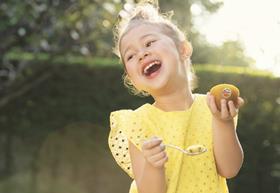
Zespri has teamed up with leading lifestyle brand Asics and the Young and Healthy Charitable Trust to launch a new programme aimed at encouraging primary school students and their families to eat better, exercise more and to lead more environmentally conscious lives.
Zespri CEO Dan Mathieson said the 2020 Zespri Young and Healthy Virtual Adventure will make a real difference to the lives of thousands of young New Zealanders.
“The programme will help teach our children the importance of eating well, exercising and taking care of our environment – values that are at the core of Zespri’s identity,” Mathieson explained.
“As one of the world’s largest fresh produce brands, and an industry focused on helping people, communities and the environment around the world thrive through the goodness of kiwifruit, we’re incredibly proud to be involved.”
The programme’s launch comes after Zespri unveiled a series of sustainability targets at the New Zealand kiwifruit industry’s Momentum conference last week.
“Our ambition is topartner with local communities on healthy lifestyle programmes in all major Zespri markets by 2022 – starting with our children here in New Zealand,” Mathieson said.
“We need to continually invest in the skills, leadership, and the wellbeing of our people and land for our industry, and our communities, to thrive in the long-term.”
Founder of the Young and Healthy Charitable Trust and Virtual Adventure creator, Kim Harvey, said the programme would be delivered to over 20,000 primary school students across New Zealand at no cost.
“In the six-week challenge, students are taken on a virtual journey around the globe,” Harvey explained. “They earn points in the real world to move their team by tracking their daily activity and healthy behaviours, like eating plenty of fruit and vegetables, drinking water, getting enough sleep and not spending too much time on screens.
“The programme encourages kids to also think about sustainability and how healthy habits can contribute to a healthier environment. Eating more fruit and vegetables could reduce packaging, and by walking or biking as often as possible, they’ll create less pollution.”



